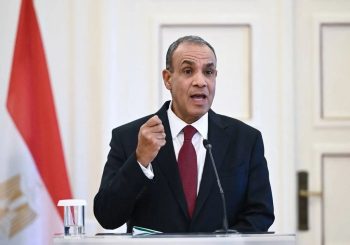As Muslims worldwide celebrated Eid Al Adha on 28 June, Salwan Momika, an Iraqi Christian refugee in Sweden, burned a Quran in front of the Stockholm Mosque, after being granted permission by Swedish authorities. Like the spark that lights off a powder keg, the incident sent ripples across the world.
The international community condemned the act, labeling it Islamophobic and bigoted.
The more extreme reaction perhaps came from Iraq, as hundreds of Iraqis were frustrated at their government’s reaction. Iraq summoned the Swedish ambassador and condemned the incident. However, it seems that many felt that this was not enough, deciding to take matters into their own hands. On 30 June, the protestors, roused by Shia leader Muqtada Al Sadr’s words, stormed the Swedish embassy in Baghdad, occupying the complex for 15 minutes before dispersing as local security forces deployed.
Escalating Tensions
In mid-July, the situation escalated further when Momika organized an event promising to burn the Quran for the second time.
Following his announcement, the Swedish embassy’s staff in Baghdad were evacuated. On 20 July, The 37-year-old stomped on the Islamic holy scripture outside the Iraqi embassy in Stockholm. Iraq responded by expelling the Swedish ambassador, recalling their chargé d’affaires in Sweden, and revoking the Swedish telecommunications giant Ericsson’s work permit in Iraq.
The situation escalated as hundreds of protestors scaled the walls of Sweden’s embassy in Iraq, and set fire to the entire complex.
The actions of Iraqi protestors received international condemnation, with the Swedish foreign ministry press office stating that Iraqi authorities have a responsibility to protect diplomatic missions. Iraq’s foreign ministry criticized the attacks, and police apprehended 20 individuals.

On 22 July, Baghdad security forces employed tear gas to prevent large crowds from approaching the Danish embassy after reports of a Quran desecration incident in a small rally in Copenhagen. Additionally, the bridges leading to the fortified Green Zone in the city, which houses numerous foreign embassies, were shut down.
Inspired by the actions of Momika, on 24 July, Denmark’s ultranationalist group, the Danish Patriots, burned the Quran in front of the Iraqi embassy in Copenhagen. The following day, the group desecrated several copies of the Quran outside the Turkish and Egyptian embassies.
International Outcry
Arab nations were at the forefront of critical reaction.
Egypt, Qatar, Palestine, Syria, Yemen, and Saudi Arabia denounced the act, while the United Arab Emirates and Jordan summoned their ambassadors to express concerns over the incident. Morocco, on the other hand, went beyond condemnation and recalled its ambassador to Sweden for an indefinite period.
Egypt’s Assistant Minister of Foreign Affairs on European Affairs, Ihab Nasr, summoned the Swedish chargé d’affaires. During the meeting, Egypt condemned the “repeated and unfortunate acts of burning and disrespect towards copies of the Noble Quran in Sweden,” according to a statement by the Egyptian Ministry of Foreign Affairs.
Al-Azhar, the leading Sunni institution, expressed disapproval one day after the second incident.
The statement on 21 July emphasized that the Swedish authorities’ repeated approvals for burning the holy book showcased their disorderly policies, extremist attitudes, backing of terrorism, and animosity towards Muslims worldwide.

Pope Francis expressed his condemnation of the Quran burning incident in Sweden. In an interview with the UAE-based publication al-Ittihad, he stated that any book considered sacred by its followers should be respected.
Freedom of Speech or Islamophobia?
The Swedish government firmly disavowed the Islamophobic act carried out by certain individuals within the country, emphasizing that it does not align with the views of the Swedish government, in a statement made on 2 July. Similarly, Denmark’s foreign ministry condemned the burning of the Quran that occurred on the day of the incident, carried out by a small group of individuals.
Liberal activists in Sweden point out that these acts should be considered hate speech, outlawed in the Nordic country if it targets race or ethnicity. However, many on the other side of the argument are reluctant to reintroduce blasphemy laws banned in the 1970s.
Earlier this year, the Stockholm police attempted to prevent Quran-burning protests. Still, their efforts were thwarted when a court ruled in favor of the demonstrators, stating that these actions were safeguarded under Swedish law.
“I think it is exceptional and extremely inappropriate for the government to criticize an individual demonstration carried out by a person who, by all accounts, has stayed within the bounds of the law, who has only used his constitutional freedom of expression,” Nils Funcke, a prominent advocate for freedom of speech in Sweden, said to the public broadcaster SVT.
According to a statement by SAPO, a Swedish security agency, Sweden is in quite a precarious position; the repeated incidents have shifted the international community’s image of Sweden “from a tolerant country to a country hostile to Islam and Muslims, where the state sanctions attacks on Muslims and where social services can kidnap Muslim children.” Additionally, the statement revealed how Sweden is now at an elevated risk of a terrorist attack from individuals “within the violent Islamist milieu.”
Sweden’s current bid to join NATO is now jeopardized in light of the incidents. Following Russia’s invasion of Ukraine last year, Sweden pursued NATO membership. However, the process was stalled by alliance member Turkey, which accused Sweden of providing shelter to terrorists and requested their extradition.

In response to the book-burning protests, Turkish Foreign Minister Hakan Fidan criticized the act through a tweet, expressing that it is unacceptable to permit anti-Islam demonstrations under the guise of freedom of expression.
Where to Go From Here?
On 12 July, a deeply polarized United Nations Human Rights Council endorsed a contentious resolution urging nations to “tackle, prevent, and prosecute instances of religious animosity and promotion,” prompted by recent Quran-burning events in Sweden.
The resolution faced significant opposition from the United States, EU, and other Western nations, as they contended that it contradicted free speech laws. Nevertheless, the resolution was adopted, with 28 countries voting in favor, 12 voting against, and seven abstaining.
Blasphemy is considered a punishable offense in 79 countries. Eighteen of the Middle East’s 20 countries have laws criminalizing blasphemy.
A stalemate persists as a rift grows ever wider between a West that celebrates its freedoms and a Middle East that holds faith close to its heart.
Subscribe to the Egyptian Streets’ weekly newsletter! Catch up on the latest news, arts & culture headlines, exclusive features and more stories that matter, delivered straight to your inbox by clicking here.







Comments (3)
[…] Arab World’s Outcry in the Aftermath of Prolific Quran Burnings in Europe valU is Offering Financing Plans to Cover AUC Undergraduate and Graduate Tuition Fees […]
[…] post Arab World’s Outcry in the Aftermath of Prolific Quran Burnings in Europe first appeared on Egyptian […]